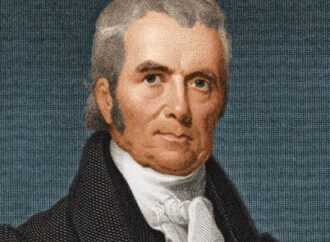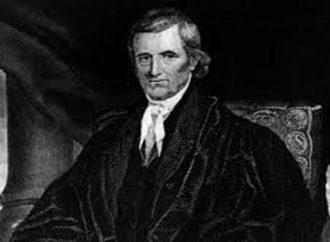2024 Property Tax Reform: The Choices Before Colorado Voters
- July 26, 2024

There has been a effort in the law schools—and at times in the Supreme Court—to appropriate Marshall as a model for liberal activism.
READ MORE
Modern accounts of the XYZ affair are bad enough, but they do not begin to capture the insulting nature of the repeated French demands.
READ MORE
John Marshall helped secure adoption of the Constitution.
READ MORE
All of these are easily accessible examples of CDC and NIH politicization. . . . Only whistleblowers can reveal the full extent of the rot within.
READ MORE
In the 20th century, the Supreme Court cited McCulloch to uphold unprecedented federal spending and regulatory programs. Law school constitutional law courses sometimes treat McCulloch the same way. . . . [But] this approach is the product of historical ignorance.
READ MORE